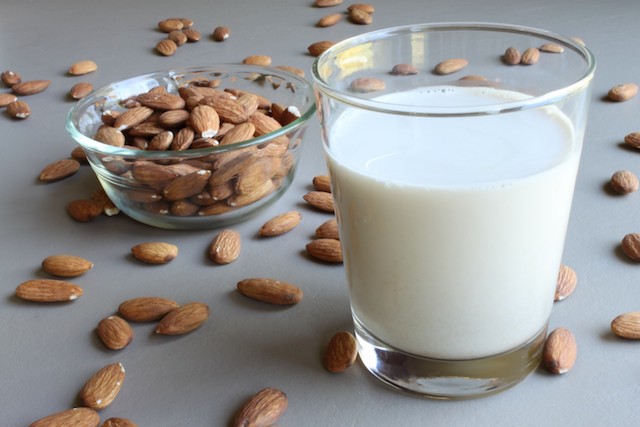Non-dairy milks (or mylk, for those in the know) are becoming increasingly popular as so many of us struggle with an intolerance to dairy or are avoiding it for ethical reasons. However, if you’re just facing the aisle of milk alternatives for the first time and aren’t sure which tetrapack to reach for, here’s a guide to the best options, their health benefits, and how to incorporate them into your diet, as well as tips for whipping up your own at home…
Almond Milk
Almond milk is low in calories while containing a hefty dose of healthy fat. It’ll help keep your bones strong and your skin glowing. Its mild, sweet taste makes it great with cereal or in sauces.
ADVERTISEMENT |
Soy Milk
This non-dairy milk is naturally high in essential fatty acid, protein, vitamins, and minerals. It also helps to improve your blood lipid profile and strengthens blood vessel integrity. It’s got quite a distinct taste, so is best used in smoothies or baking where it will be neutralized by other flavours.
Hemp Milk
Hemp is also rich in fatty acids, as well as a host of other nutrients. It’s great for keeping skin clear, bolstering your immune system, and improving circulation. Hemp milk has a mild nutty flavour and is also great in smoothies or baking.
Oat Milk
This is a grain-based mylk made from blending water with dried oats and then straining it. It’s high in natural fibre and iron, while also low in fat, sugars, and calories. Oat milk also contains a type of antioxidant called phytochemicals, which can protect against diseases including heart disease, stroke, and some cancers. Its mild flavour makes it great for drinking plain or serving with your cereal.
ADVERTISEMENT |
Cashew Milk
Cashew milk is often fortified with calcium and vitamins A, D and B-12, making it a good supplement to a vegan diet. The pleasant, sweet nutty flavour makes it great for drinking on its own or for adding to smoothies and baking.
Rice Milk
A great source of B-vitamins and has no saturated fat or cholesterol, but contains a lot of carbohydrates so it’s not suitable for all diets. It is lower in nutrients than other milk alternatives and has a similar taste to almond milk, so I’d recommend giving it a pass and looking for another option to enjoy.
Coconut Milk
Coconut milk is different than the kind you buy in a can to use in many Thai recipes. This variety is thinner and has a less coconutty flavour. It’s a good source of healthy fats, and its fat content makes it great for steaming to serve in hot beverages.
The nutritional profile of your mylk will vary depending on the brand that you buy, so be sure to check the label. And like any food product with a long shelf life, many of them contain preservatives and emulsifiers. Of particular concern for some is carrageenan, a controversial additive than has been linked to some gut issues. Although not everyone has a reaction to it, it’s worth staying away from if you have chronic stomach problems. Your best bet is to look for brands offering the shortest ingredient lists that only contain items you know.
ADVERTISEMENT |
Or, keep it completely clean and make your own! Whipping up your own mylk is a breeze. Use one cup of nuts or seeds (soaked for at least one hour) to one litre of water. Combine them in a blender on high speed for at least two minutes. Use a cheese cloth or a nut milk bag to strain the mylk. Sweeten or flavour if desired. Store in the refrigerator and consume within one week.
What are some non-dairy milks in your diet? Let us know in the comments below or tweet us @ViewTheVibe.






